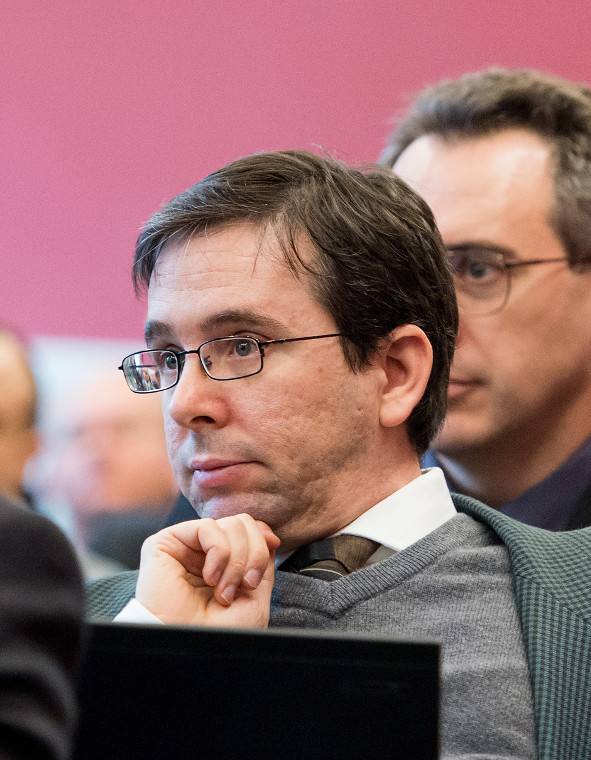
Suso Baleato
Suso Baleato (PhD Political Science, Informatics) is specialised in the application of computational methods to support scientific inquiry and policy analysis. His research focuses on Internet measurement and the causality of digitalisation, and it has been published in academic outlets such as Science. Dr. Baleato has contributed to the global digitalisation policy-making process in the context of the OECD and G7/ G20 dialogue, with an emphasis on privacy and data protection, artificial intelligence and cybersecurity. He has been appointed Postdoctoral Fellow at Harvard University Institute for Quantitative Social Science (IQSS), Martin Associate at the Oxford Cybersecurity Capacity Center, and Liaison of the Civil Society Council for the OECD Committee on the Digital Economy Policy. He has been member of the Society for Political Methodology (POLMETH), the International Studies Association (ISA), the European Consortium for Political Research (ECPR) and the Midwest Political Science Association (MPSA), and the American Association for the Advancement of Science (AAAS). Suso is Galician.
Selected Publications
Digital discrimination: Political bias in Internet service provision across ethnic groups
Science. With Nils B. Weidmann, Philipp Hunziker, Eduard Glatz, Xenofontas Dimitropoulos. Science, 09 Sep 2016: Vol. 353, Issue 6304, pp. 1151-1155 DOI: 10.1126/science.aaf5062
The global expansion of the Internet is frequently associated with increased government transparency, political rights, and democracy. However, this assumption depends on marginalized groups getting access in the first place. Here we document a strong and persistent political bias in the allocation of Internet coverage across ethnic groups worldwide. Using estimates of Internet penetration obtained through network measurements, we show that politically excluded groups suffer from significantly lower Internet penetration rates compared with those in power, an effect that cannot be explained by economic or geographic factors. Our findings underline one of the central impediments to “liberation technology,” which is that governments still play a key role in the allocation of the Internet and can, intentionally or not, sabotage its liberating effects.
Transparent Estimation of Internet Penetration from Network Observations
Lecture Notes in Computer Science. With Nils B. Weidmann, Petros Gigis, Xenofontas Dimitropoulos, Eduard Glatz, Brian Trammell. In: Mirkovic J., Liu Y. (eds) Passive and Active Measurement. PAM 2015. Lecture Notes in Computer Science, vol 8995. Springer, Cham
This paper presents a new method to estimate Internet Penetration based on the analysis of open data that facilitates replicability and open science. The resulting estimates are compared with those provided by the ITU/OECD Internet penetration statistics of the used IPv4 address space across countries. The analysis shows very high correlations ranging between 0.898 and 0.978 for all years between 2006 and 2010. Besides, the paper illustrates how measurements of the used IPv4 address space can serve as a more timely Internet penetration indicator with sub-national granularity, using two large developing countries as case studies.
OECD Guidelines on the Protection of Privacy and Transborder Dataflows of Personal Data
OECD (collaboration)
These new Guidelines constitute the first update of the original 1980 version that served as the first internationally agreed upon set of privacy principles. Two themes run through the updated Guidelines; 1) A focus on the practical implementation of privacy protection through an approach grounded in risk management, and 2) The need to address the global dimension of privacy through improved interoperability.
Professional Experience
Scientific Research and Policy Analysis
2012 - Current
- In 2017, he was appointed Postdoctoral Fellow at Harvard University Institute for Quantitative Social Science (IQSS) to apply privacy preserving algorithms to facilitate statistical analysis on sensitive research data, and re-appointed as Associate since 2019.
- In 2016 he joined the Department of Political Science and Sociology at the University of Santiago de Compostela as a Postdoctoral Researcher, teaching since 2019 on topics approaching the Political System from a computational perspective, including Data Science, Statistical Modeling, Information Management or Digital Security.
- In 2013 he joined the Communications, Network and Contention Research Group at the University of Konstanz (Germany), taking part in projects together with the Federal Institute of Technology, Zurich (Switzerland) and the Center for Applied Internet Analysis (CAIDA) at the University of California San Diego (United States). As research asistant he took part in projects of the Humboldt University of Berlin (Germany) and the Complutense University of Madrid (Spain).
- In 2012 he started to contribute to the policy making process analysis at the OECD Committee for the Digital Economy for the Civil Society Council in the fields of Statistical Measurement and Analysis, Digital Security and Privacy, Communication Infrastructures, and Digital Economy. As an Oxford Martin Associate, he took part in the design of the University of Oxford's Global Cybercapacity Framework.
Systems Administration and Software Engineering
2006 - 2009
Chief Innovation Officer at the Open Source Reference Center/ Government of Galicia (Galicia/ Spain). In charge of the change management process leading to the creation of the Open Source Reference Center; product owner of the software projects supporting the migration of the Galician administration to GNU/ Linux: Galinux, AraOS and Monifate.
1995-2005
Administration of computer networks at the public administration of Galicia, including the Ministry of Health (2001-2005), and the University of Santiago de Compostela (2000-2001). Responsibilities included the management of the data centers, software development, maintenance of the network infrastructure, support to end users, and back-up policy. Previously he took part in several Internet start-ups as Chief Technology Officer.